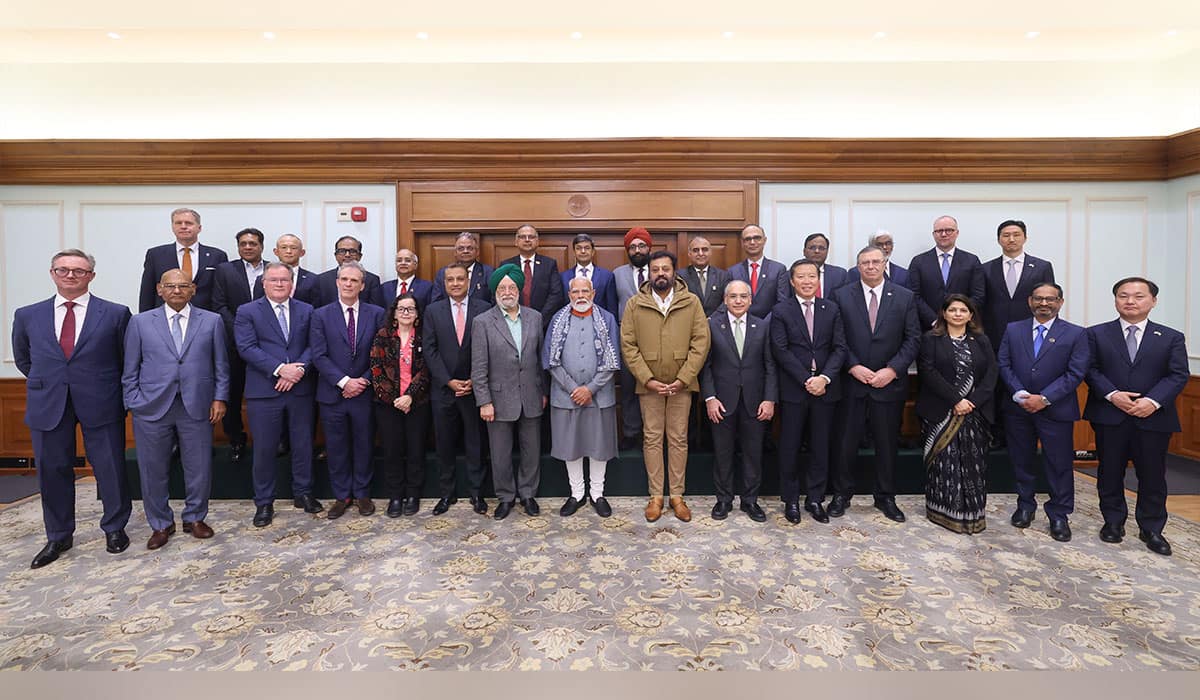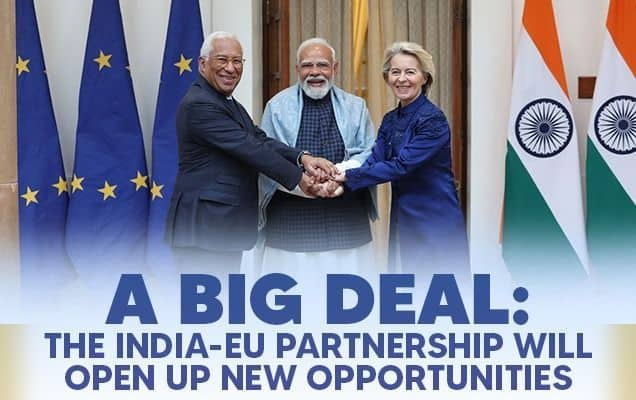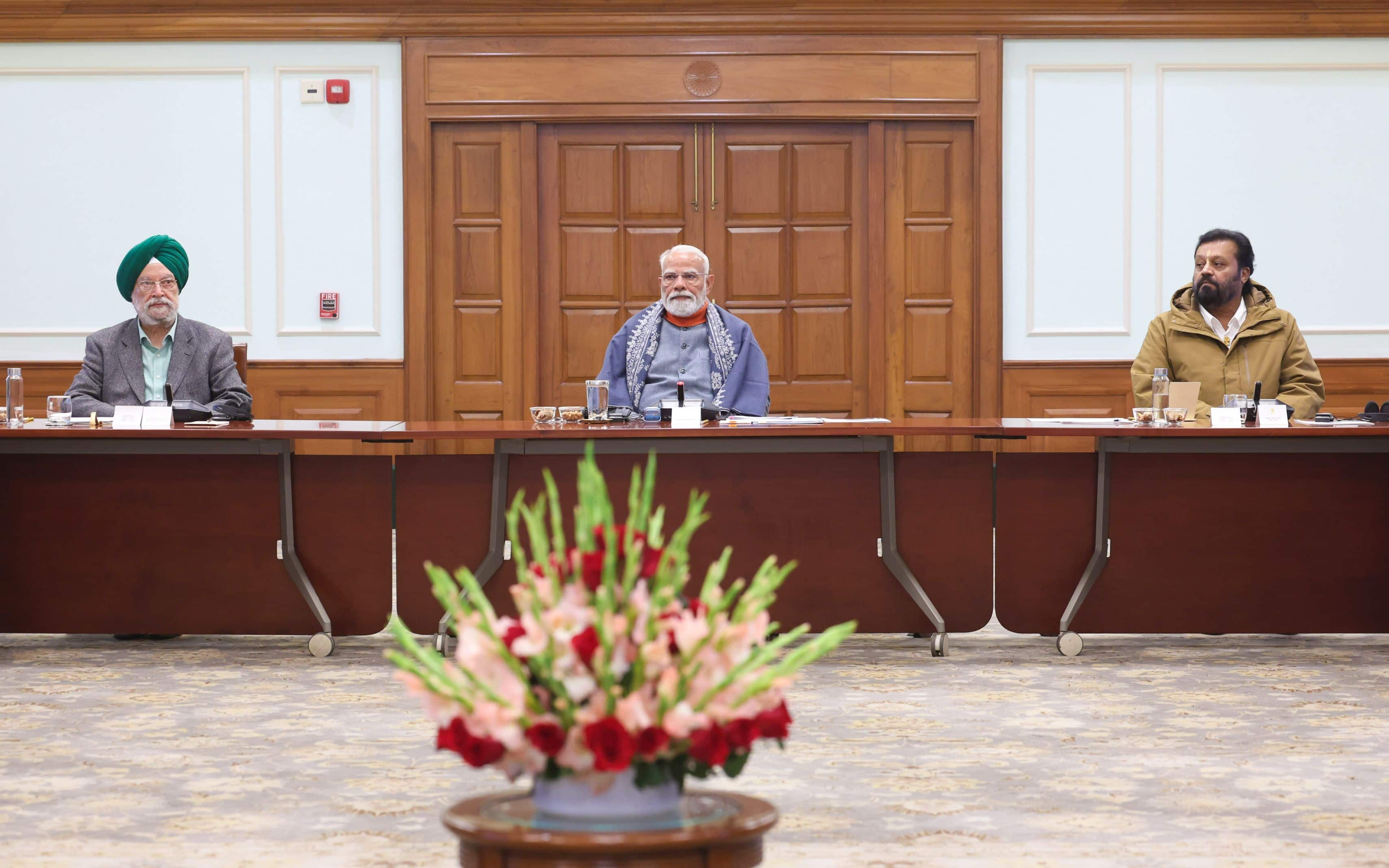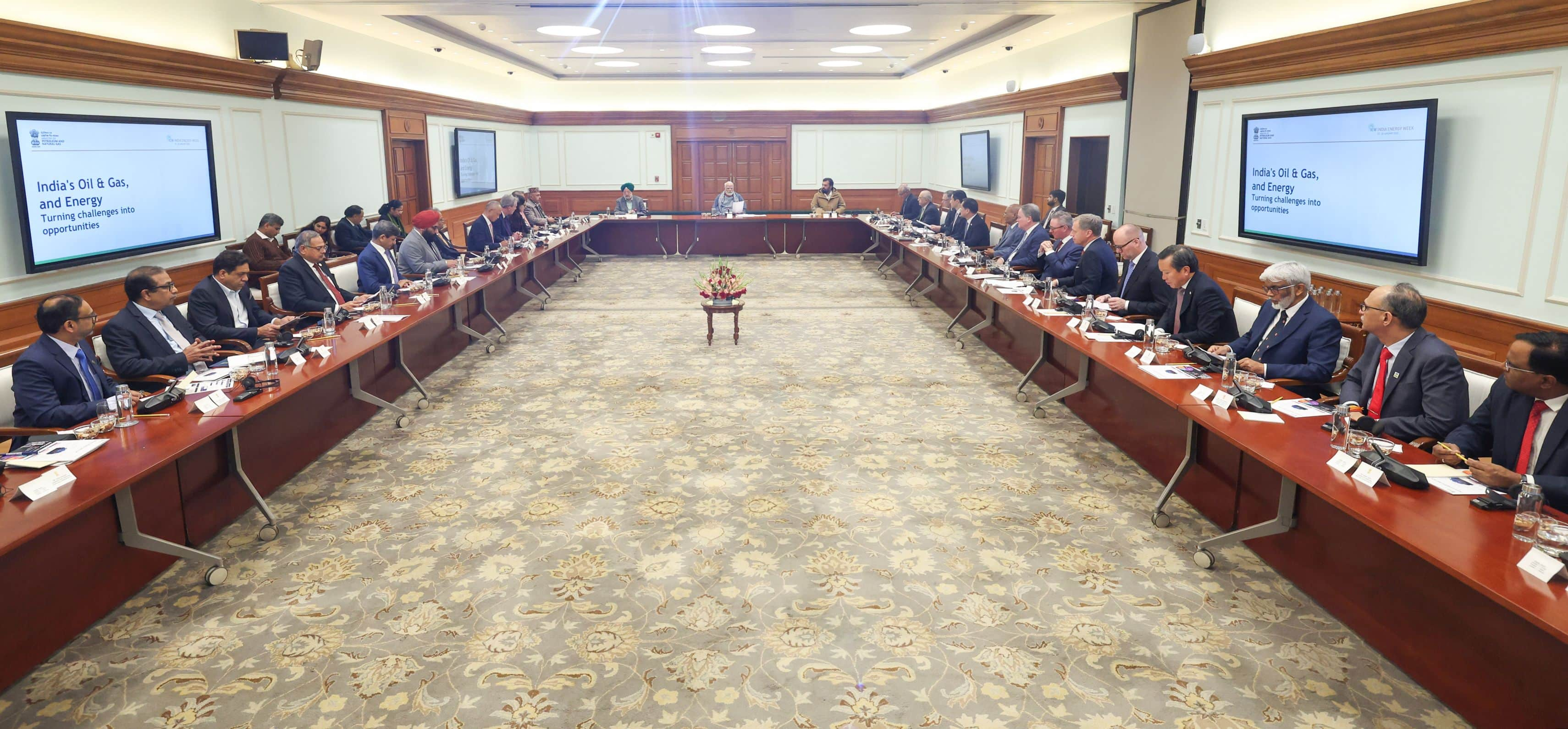On March 21st, 2013, Shri Modi addressed the Google Big Tent event. The event, organized by Google in association with The Guardian saw participation by important thought leaders from India and abroad.
Below are excerpts from Shri Modi’s speech.
The crux of politics lies in connecting to the people.
“Alvin Tofler said, “The Illiterate of the 21st Century will not be those who cannot read and write, but those who cannot learn, unlearn and relearn.” This applies to everyone and every field, but more so to politics and the political class.”
“The crux of politics lies in connecting to the people.”
“Politicians readily adopted technology that connected them to the people better. From pen and paper - to microphones and public address systems, from motion pictures – to the era of Television.”
“All these tools have been extensively used for political purposes since their introductions. They have greatly influenced politics, and in turn been greatly shaped by it as well. They have become synonymous with politics.”
“Today’s web-connected world has brought about another paradigm shift with the Internet. This is not just impacting politics, but is in a sense fundamentally redefining it.”
I have been saying IT+IT= IT. Indian Talent + Information technology= India Tomorrow.

“Earlier technological evolutions helped politicians more. Information technology has led to empowerment of people as well! This is very important for a large democracy like India.”
“I have been saying IT+IT= IT. Indian Talent + Information technology= India Tomorrow.”
“Information in the pre-internet era was more one-dimensional. It was limited to politicians bombarding their thoughts and views on citizens. Now it is a two way process. Citizens are empowered with wide access to information – from multiple channels. “
“In India earlier, a citizen’s connect to politics was limited to once in every five years - from one election to another. Now, one engages with, and is a part of the polity every moment! He shares information, raises questions, comments, and connects with others. He voices his opinion and gives his feedback.”
The internet has therefore truly empowered the citizen. It has forced the politician to perform.
“The time has come for the political class to adapt to this change and reinvent itself! It needs to embrace the internet’s many powerful facets. The political class needs to stop seeing technology as a problem creator, and start harnessing it in the right spirit.”
“When I am unable to reach huge gathering of people who have been waiting for me since hours. I then use a simple mobile to address them. At the other end a mobile instrument is put on the microphone. People are more than happy to hear me through the mobile on public address system.”
“In the 2012 elections I pioneered the using of 3D Holographic technology to reach out to multiple geographies at one go. I addressed voters at 53 places across the state. This unique concept not only helped me reach out to more geographies and voters, but also helped reduce the cost, time and energy required.”
“I interact with lakhs of my fellow countrymen and women through social media. I share my thoughts with them, as well as listen and learn from them. I understand their concerns as well as connect with their dreams and aspirations.”
“Former President Clinton aptly called it the new town square. In this age of internet democracy, citizens are netizens, who transcend the geographical borders of countries and continents.”
“Technology has merged politics with governance. The focus of the public sphere is on accountability, transparency and action. Good governance is the key political agenda now, be it in the developed or developing world. And this is driven by the internet, new communication media and digital convergence.”
The internet has been a game changer in the realm of information-based decision making.
“The internet has been a game changer in the realm of information-based decision making. It has transformed the policy making process. It has ushered in an age of direct democracy - where the common citizen directly engages in the policy making process and affects the policy outcomes, rather than being limited to doing so through his elected representative.”
Advanced technology is rapidly transforming the government-citizen relationship. Social media in particular, provides a great platform for the government to engage with citizens.
“In Gujarat, To ensure that people’s voice is heard, we use ICT for redressing grievances. I personally host SWAGAT sessions in my office. The unique aspect of this project is that the grievance of the common man is addressed in real time. We modify policies and systems based on repeated grievances. Our efforts have been applauded by the UN, receiving the UN Public Service Award in 2010 for 'Improving Transparency, Accountability and Responsiveness in Public Service’. “
“Gujarat is strategically using satellite mapping for better decision making. We have institutionalised this in the form of BISAG - Bhaskaracharya Institute for Space Applications and Geo-Informatics. We use this technology extensively - from our most modern, large scale projects like building Special Investment Regions and smart cities … to giving rights of forest land to tribals.”
“Earlier, when politicians used to lobby for infrastructure like schools and hospitals in their constituencies, we did not have any scientific method of deciding the allocations. Today, we map the demography, the need and the availability using GIS. We thus bring parity among the local communities. This has also given a new direction to local politics.”
“Resurvey of lands is very important for better land management and ensuring less disputes. It is required to be done every 30 years. But the last such survey was done in India from 1890 to 1930. Gujarat has undertaken resurvey of lands using state of the art technology - Differential Global Positioning System (DGPS) and Electronic Total Station Machines (ETS).”
“Our e-Gram Vishvagram project connects all the district, taluka and village panchayats across the state with broadband. This enables video conferencing facilities at all villages, issuing of documents and certificates and a host of other e-services.”
“We use simple technology in disaster management services. Merely sending timely SMSs to citizens during the 2006 floods ensured that not a single life was lost in spite of heavy rains and flooding.”
“Voting is the bloodline of the political process in a democratic polity. India’s Electronic Voting Machines (EVMs) have simplified voting and counting - making it easy and fast.”
“In Gujarat, we have graduated from EVM voting to eVoting - launching on a pilot scale in Municipal elections. Our pioneering efforts have been acknowledged with many awards including the National award for excellence in government process reengineering.”
“Advanced technology is rapidly transforming the government-citizen relationship. Social media in particular, provides a great platform for the government to engage with citizens.”
“We organised the Sabarmati Riverfront Photography Competition on social media, several thousands participated. Amateurs as well as professionals sent entries in large numbers. The competition reached out to more than two hundred thousand (2,00,000) citizens and helped increase the popularity of the riverfront in a manner no paid ad campaign could have.”
“I find it extremely interesting to see how Netizens have evolved their own language and dictionary of words. Here neither the spelling nor the grammar matters. 140 characters can convey it all. This dimension also plays a very important role in empowerment. It gives people from different parts of the world the confidence to overcome their limitations in language. It enables them to go ahead to freely express and connect.”
Technology in itself is neither good nor bad. That depends on how it is harnessed.
“Technology in itself is neither good nor bad. That depends on how it is harnessed. While ‘Technology in Politics’ plays a crucial role … it would do us great good to stay away from letting ‘Politics into Technology’.”
“Deployed in the right way, technology can be an extremely powerful force, capable of bringing about great change! The challenge is how better we can connect the common man to this www world. We need to find solutions by which he can connect in his local language. We must focus our technological policies and innovations on the greater good – empowering people and nurturing a development based agenda.”
















